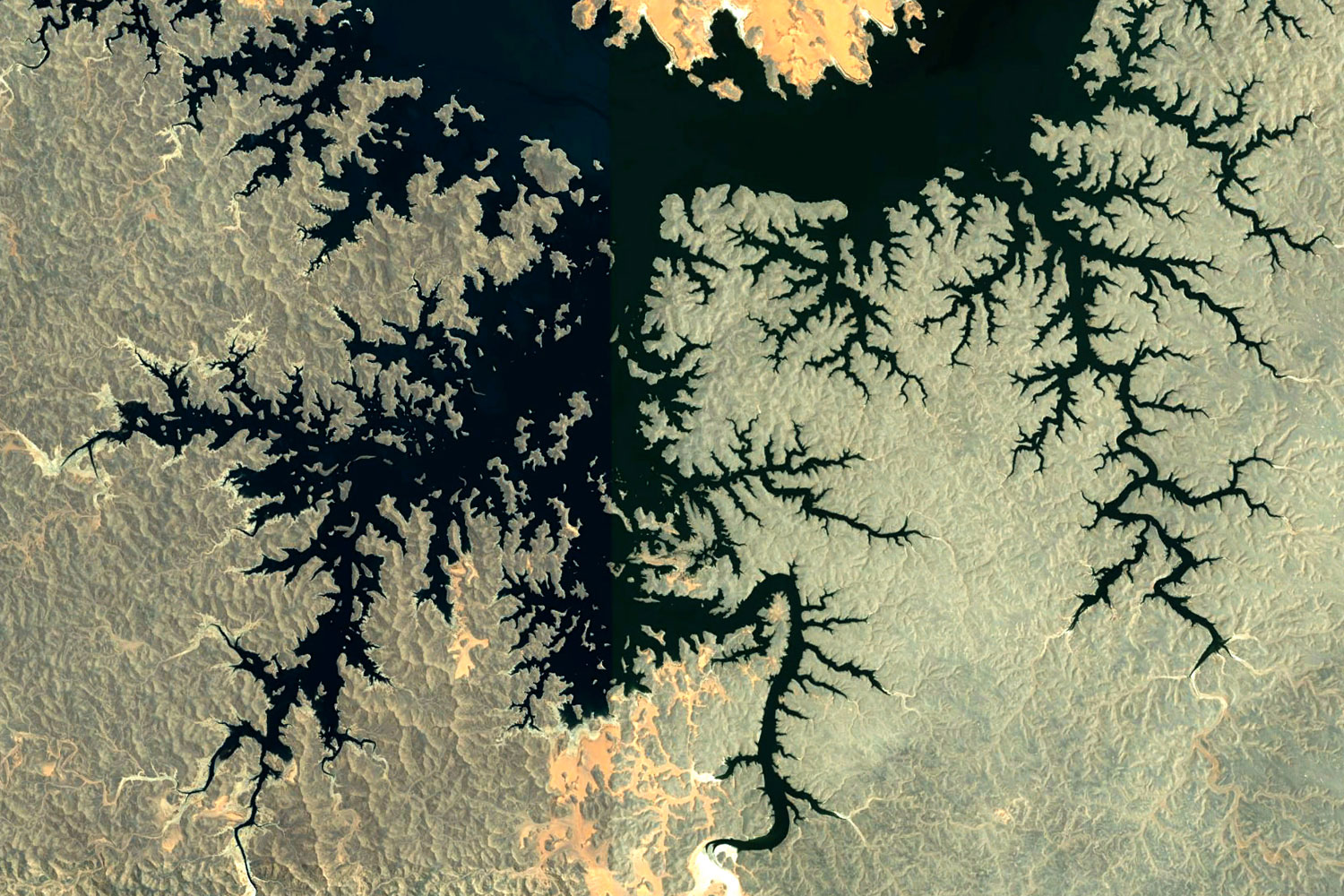
In a world made small and accessible by technology, it is easy to forget the magnitude of nature’s infinite complexity. But sometimes technology reminds us, such as when trawling planet Earth on Google’s Satellite View, zooming across landscapes partitioned by natural and unnatural boundaries.
While searching Google Earth, Paul Bourke, a research associate professor at the University of Western Australia, discovered an amazing sight—the patterns of the Earth seemed to form a delicate geometric pattern when viewed from the sky. Not only delicate, but almost perfect. Bourke was captivated by the geography—lacy tracks of rivers and mountain ranges stretching across the Earth in unison as if digitally cloned.
Fractals are recognized as patterns of self-similarity over varying degrees of scale. There are both mathematical fractals as well as natural fractals—the former are idealized and found across a range of scales, while the latter generally only exist across a smaller scale range.
Bourke explains that fractals are found in all parts of life, from the brain sciences and astrophysics to geographic formations and riverbeds. “Fractal and chaotic processes are the norm, not the exception.”
“I always knew these amazing natural patterns would be there,” he said. “They are literally everywhere—it’s just a matter of finding them.”
And find them he did. Bourke, an authority on fractals and visualizations, showcases more than 40 different fractals he’s uncovered while zooming through the satellite views of 25 countries. Through his website, he encourages users to submit examples they’ve found in their own browsing, and provides KMZ coordinate files for each image, allowing users to visit the exact views of the fractal features. Bourke’s collection realizes the power enabled by the open-ended tools of modern technology and applies them to a practical and popular aesthetic end.
To see more natural fractal patterns, visit Bourke’s website or build a free website.
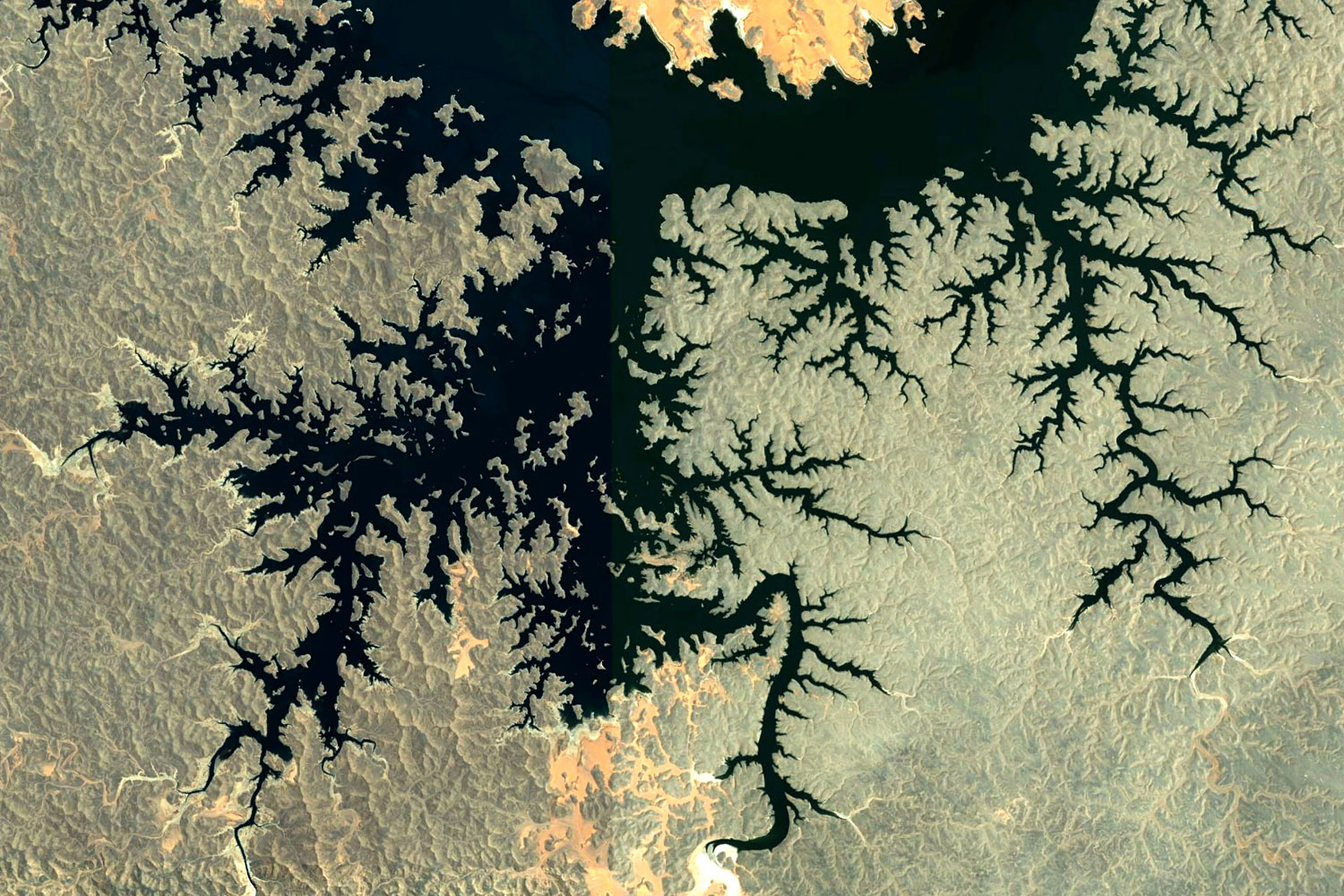
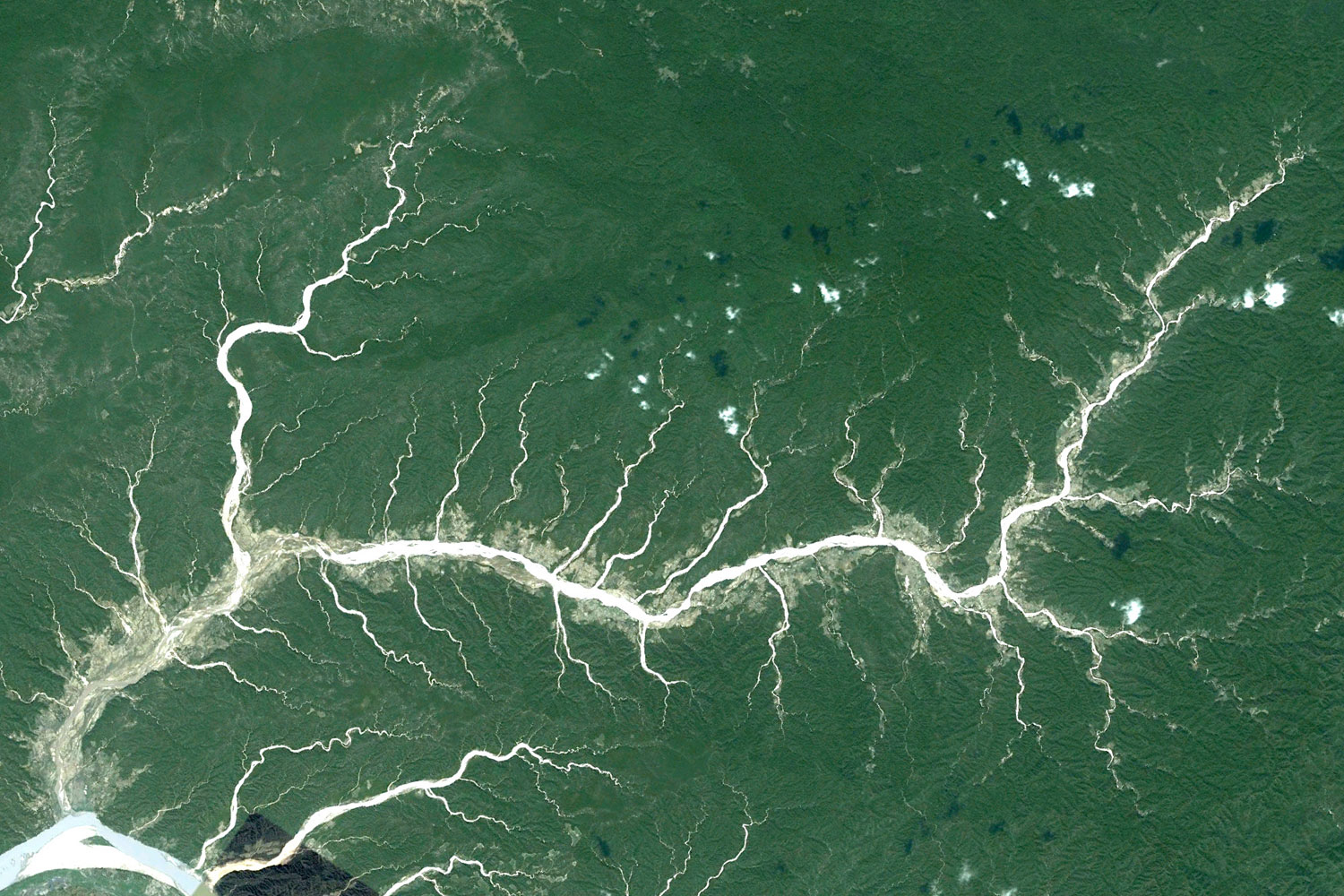
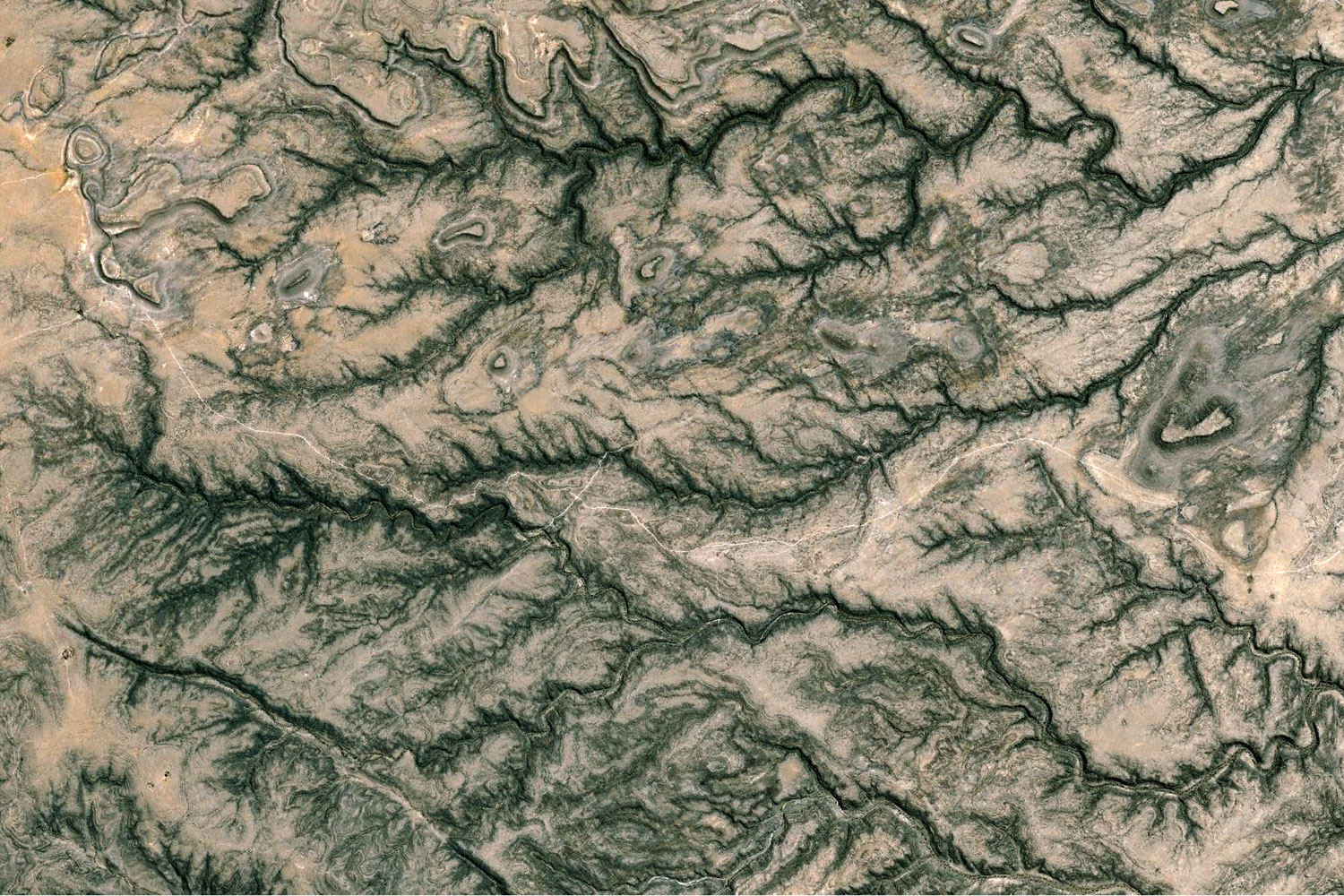
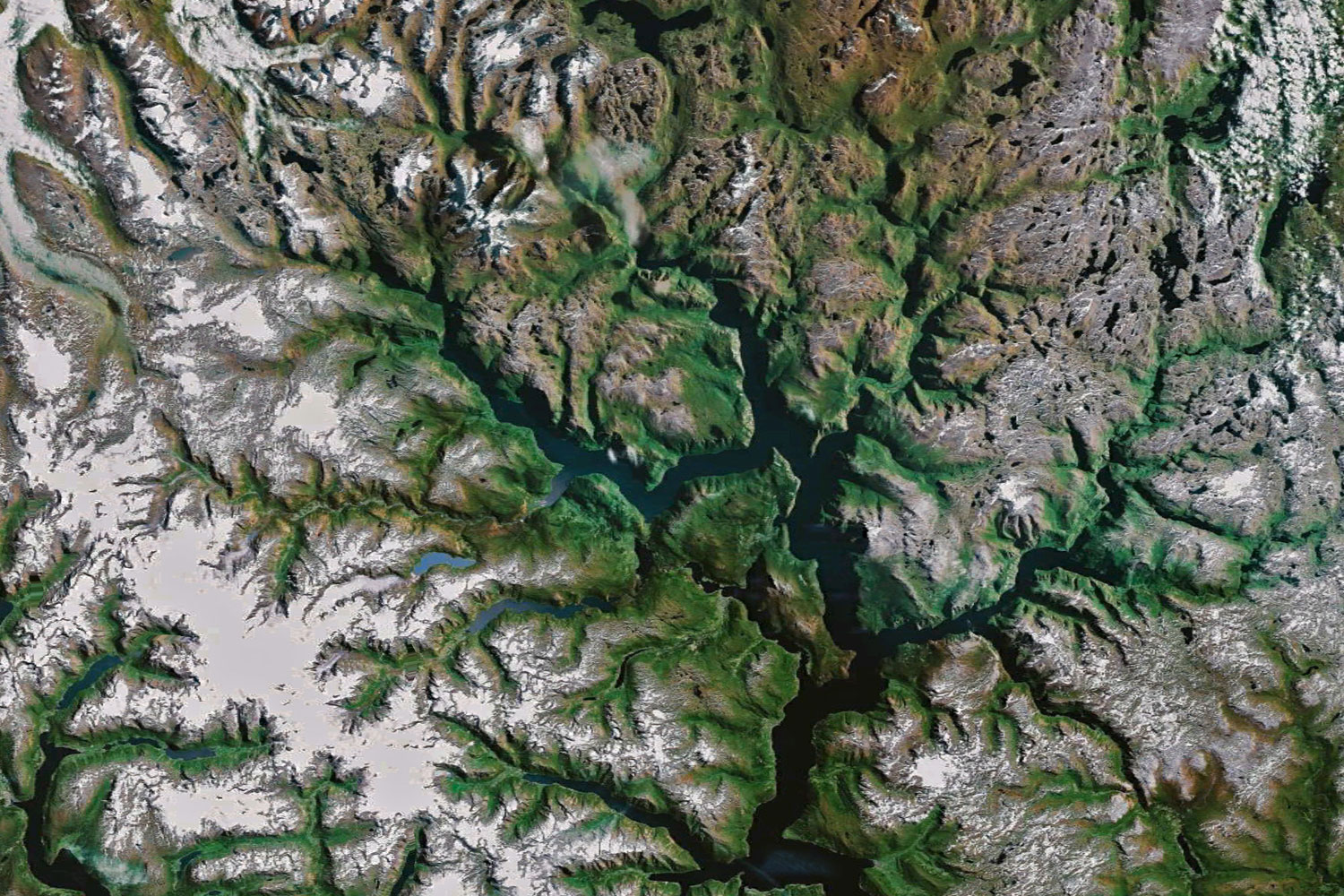
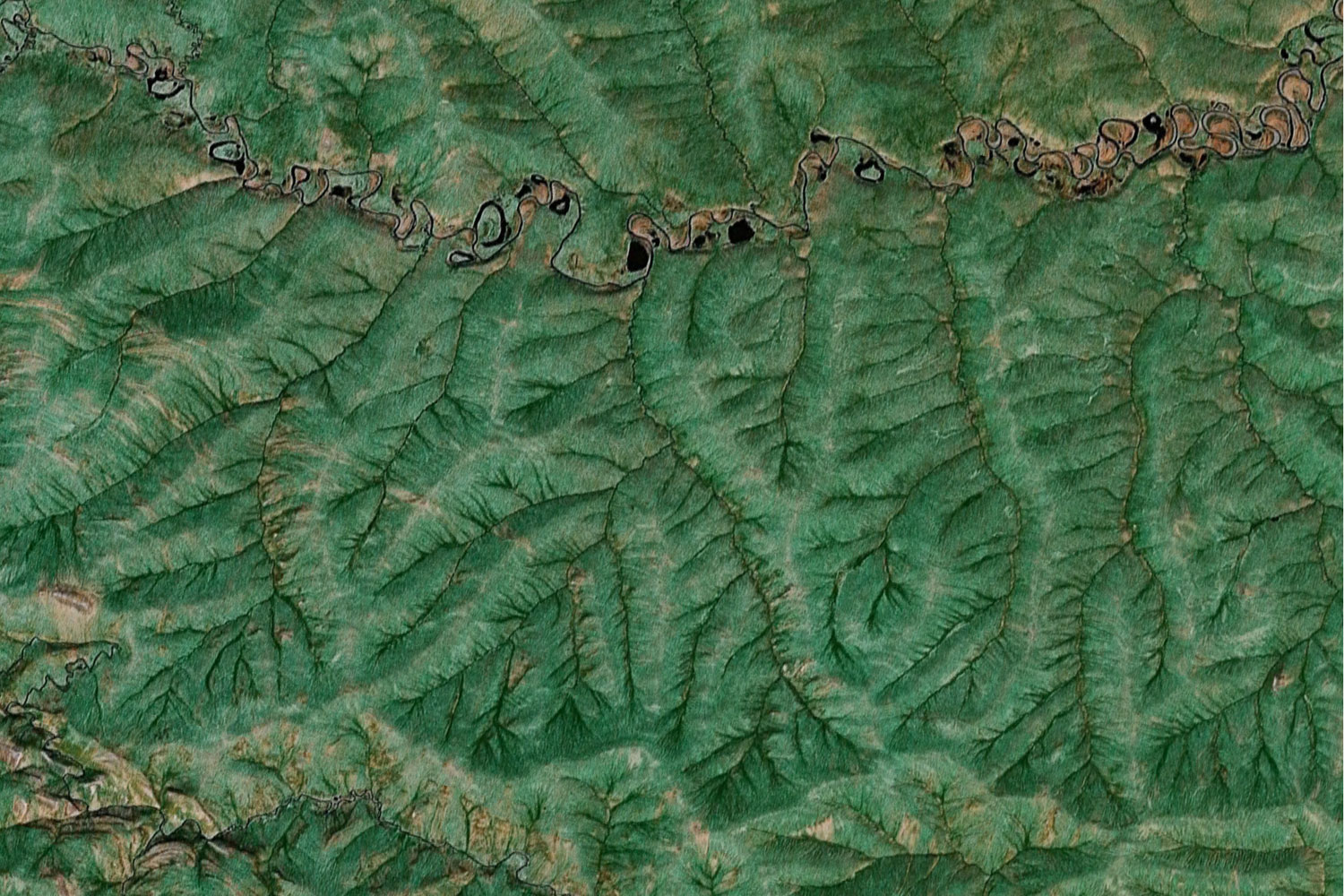
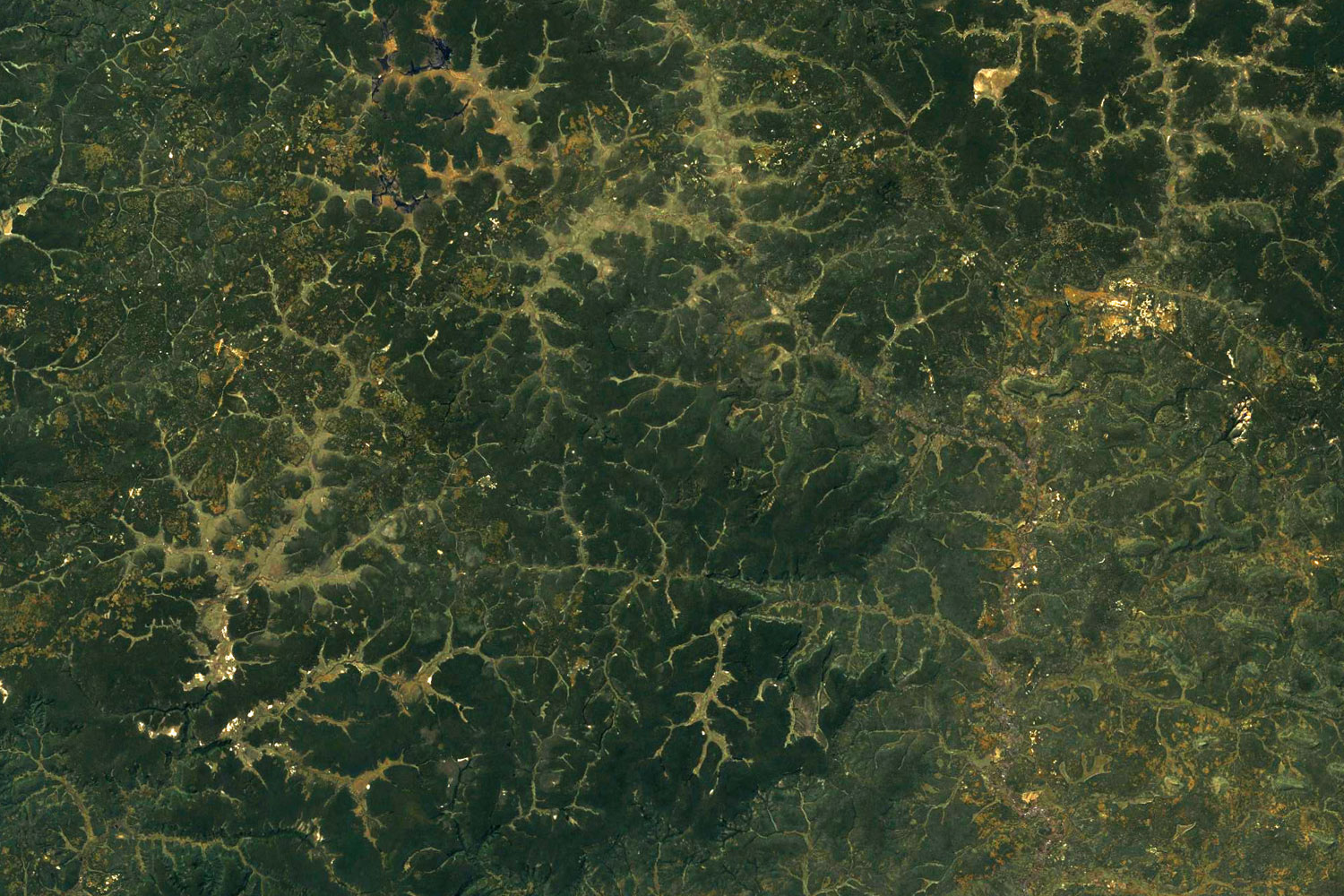
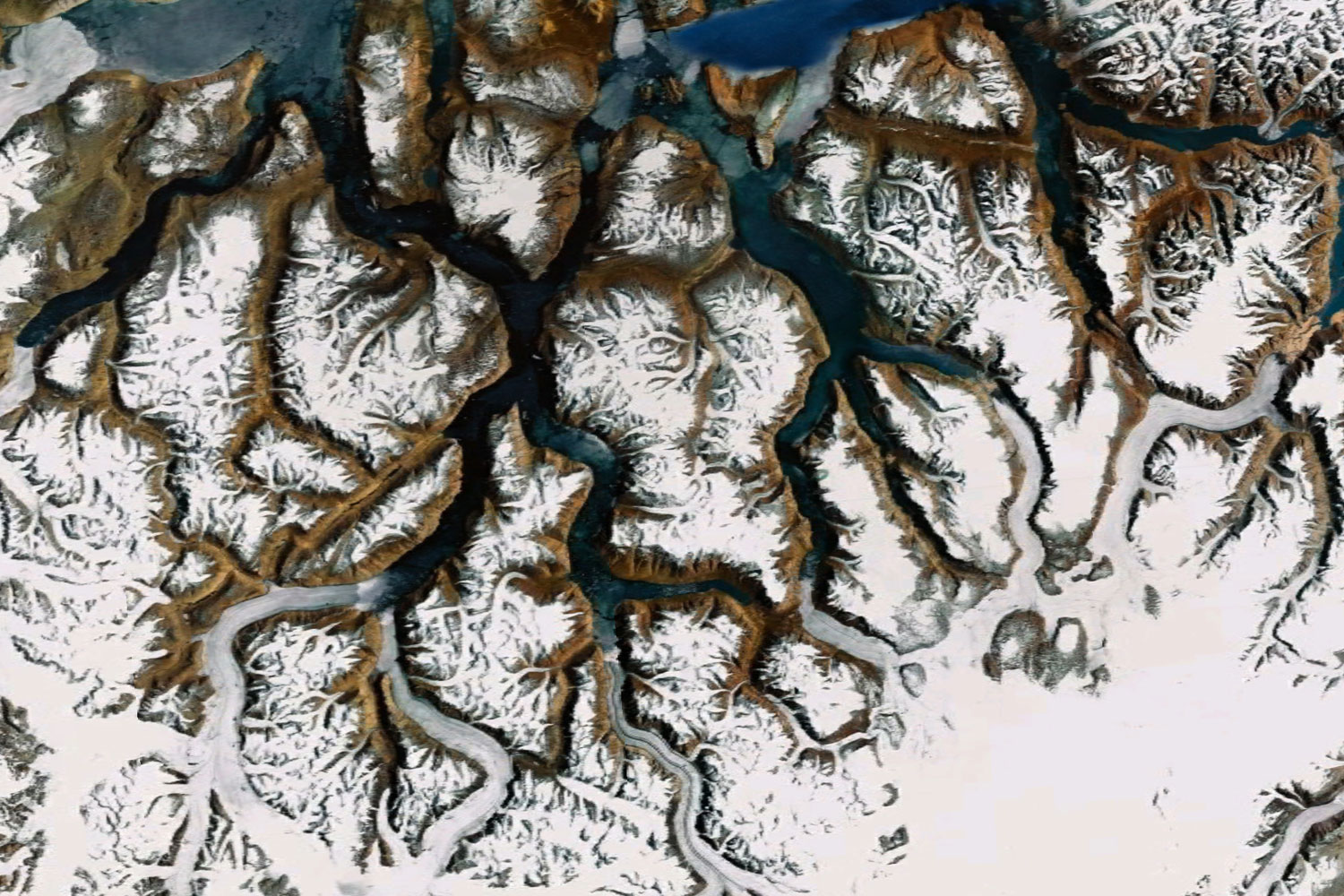
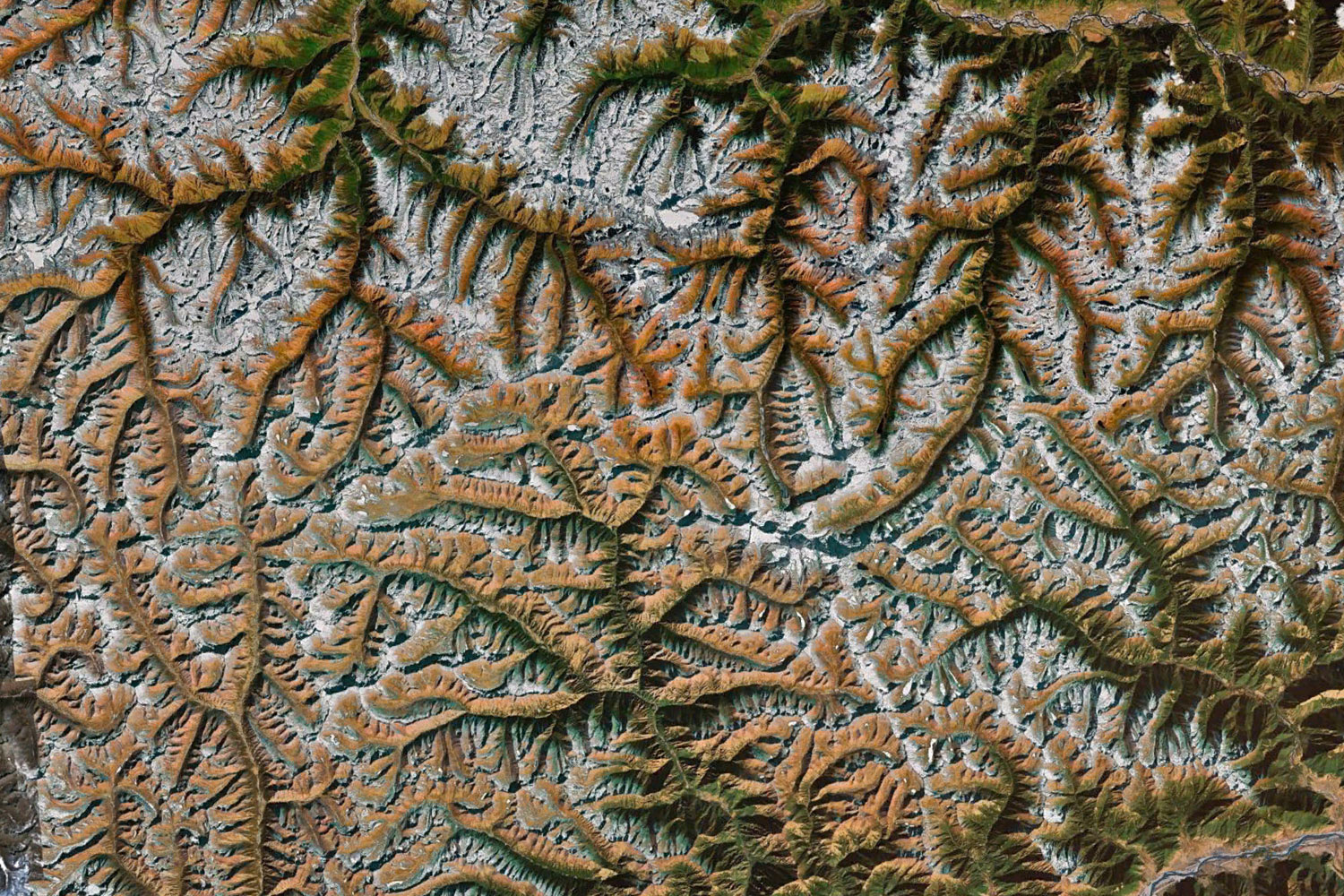
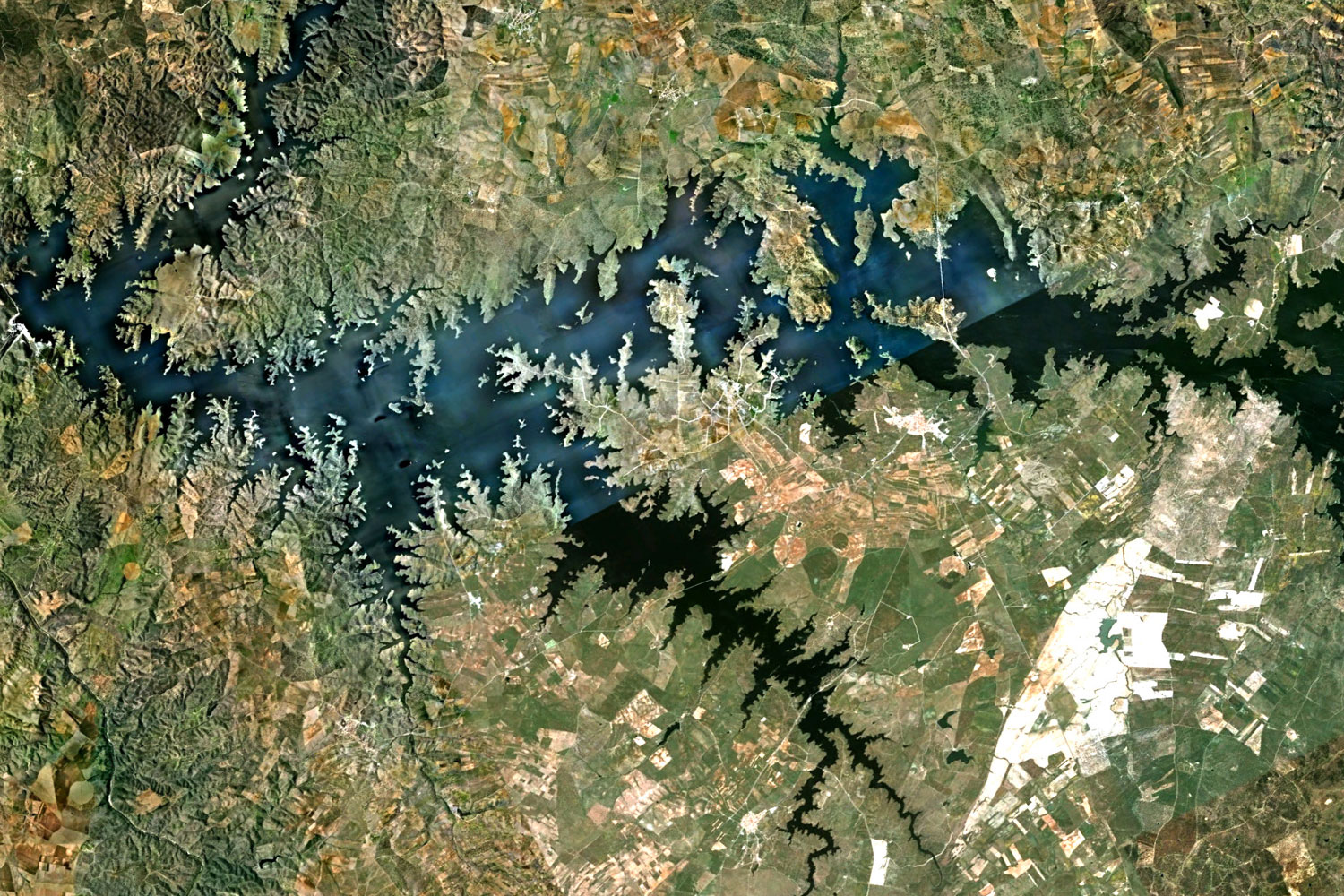
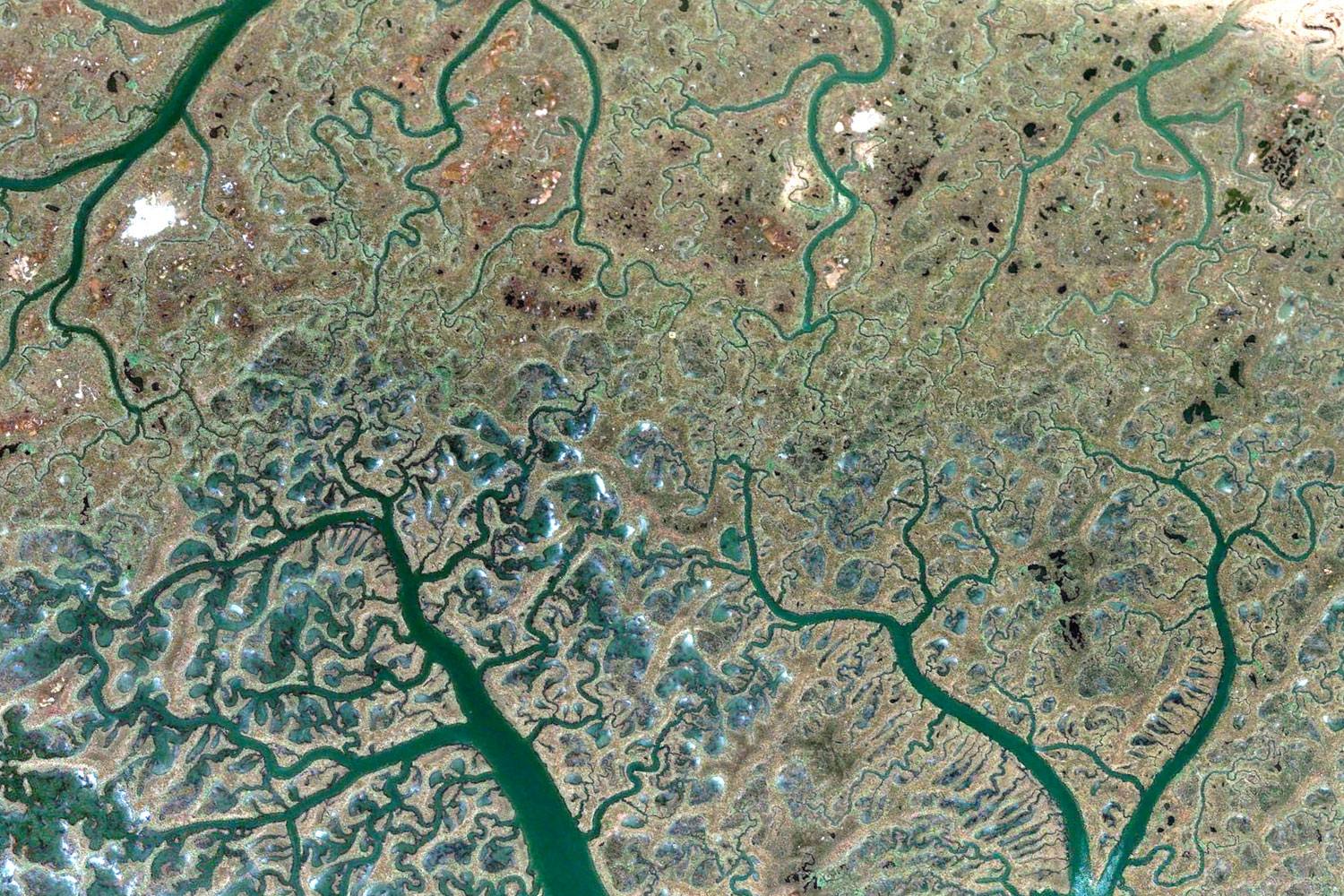
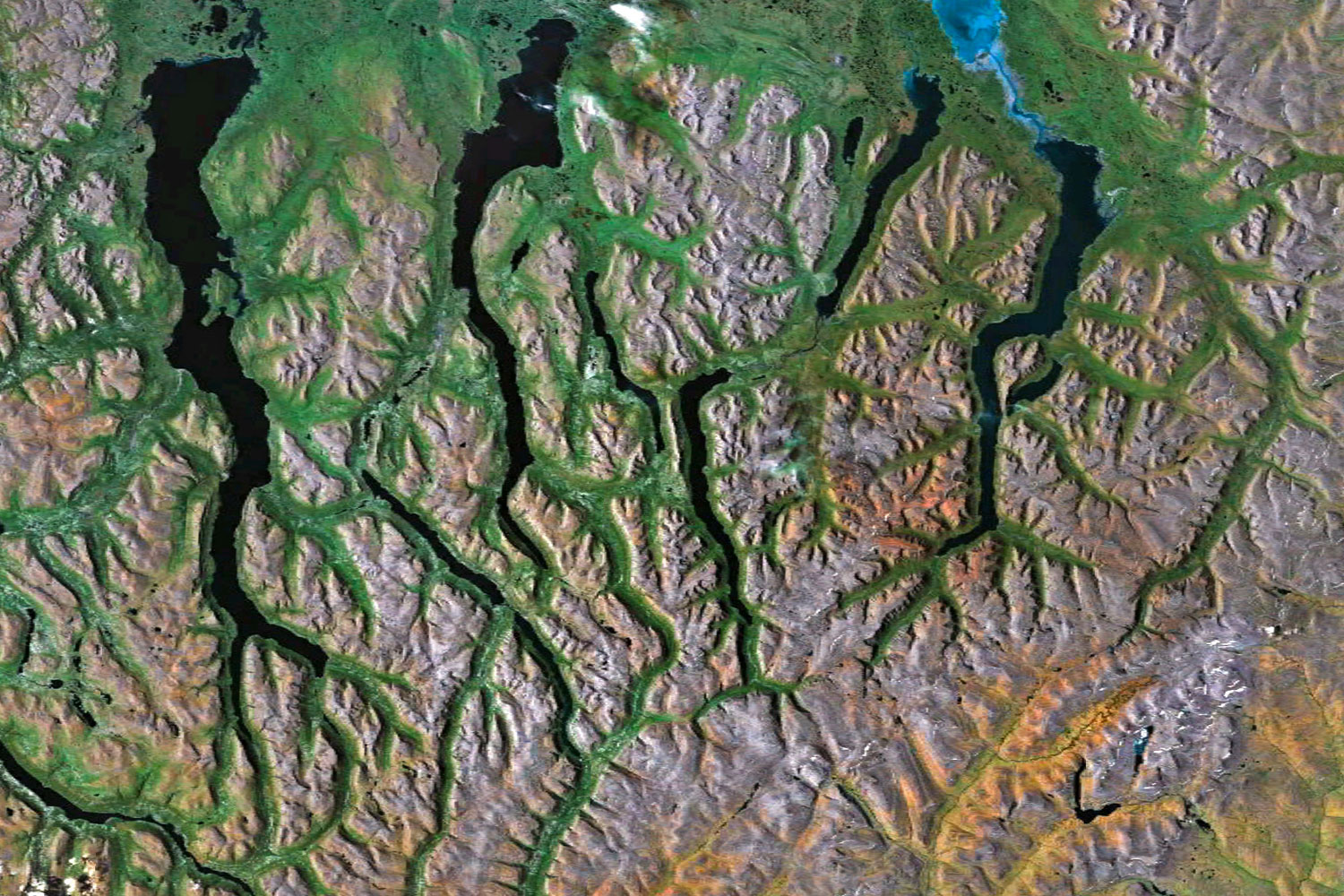
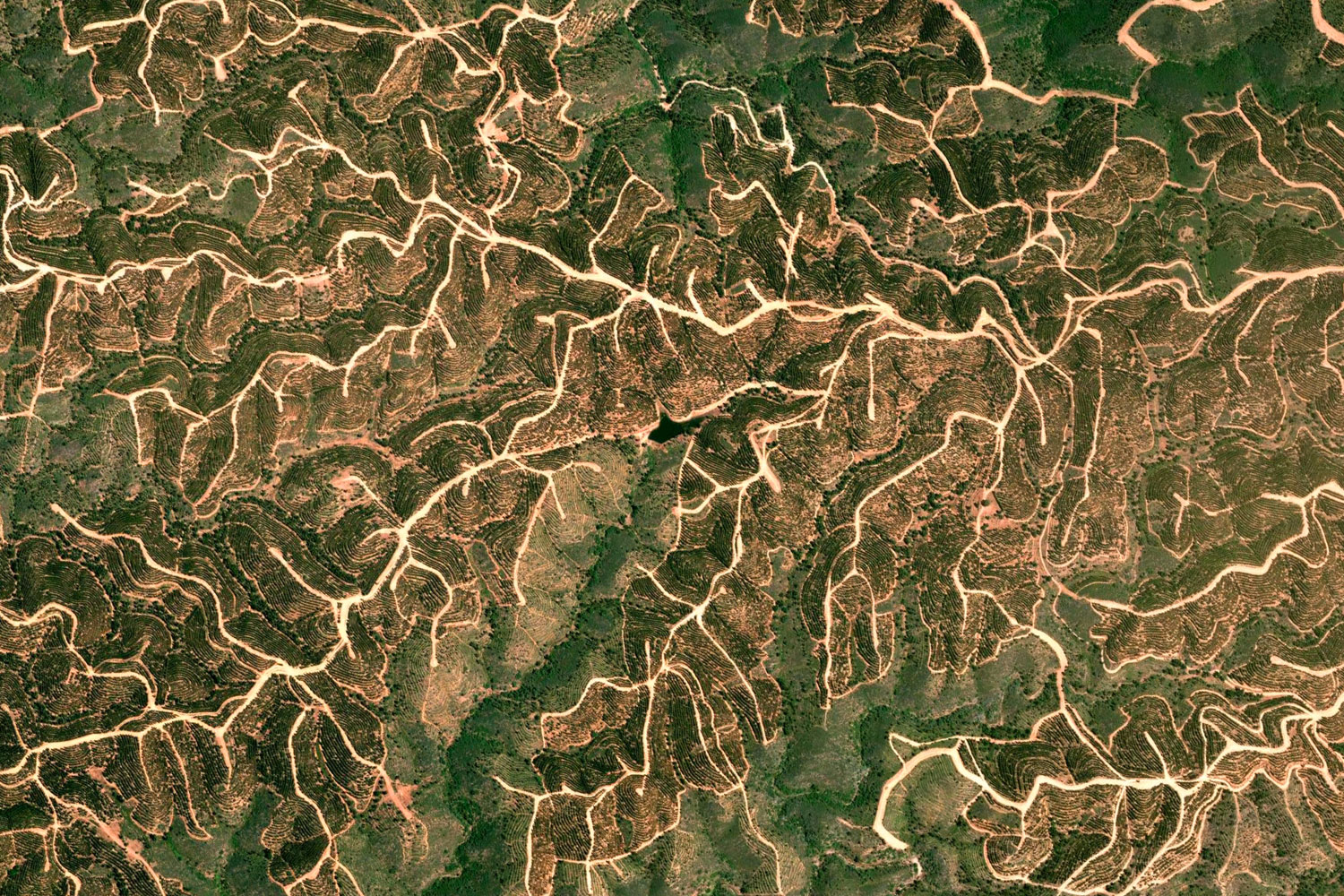
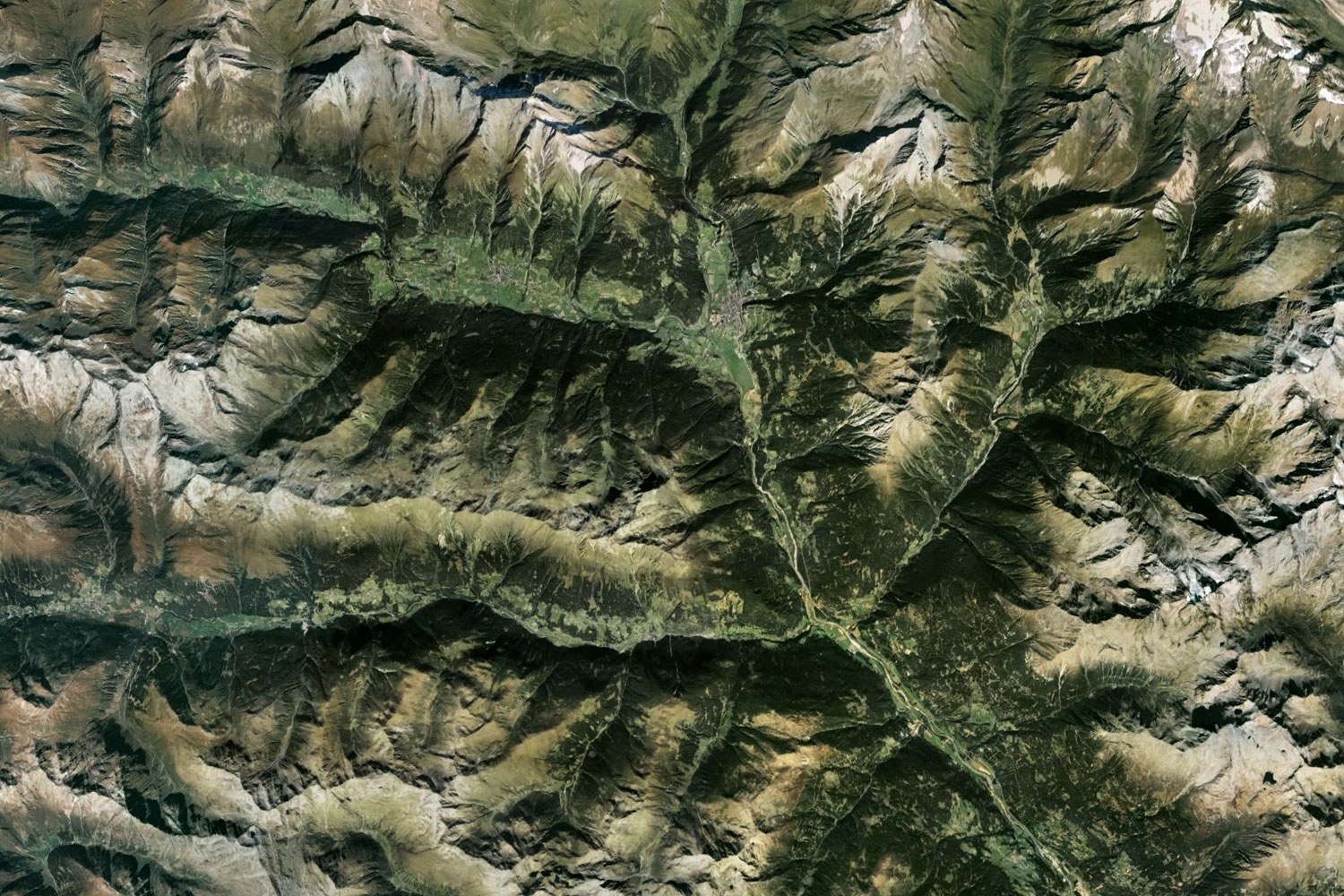
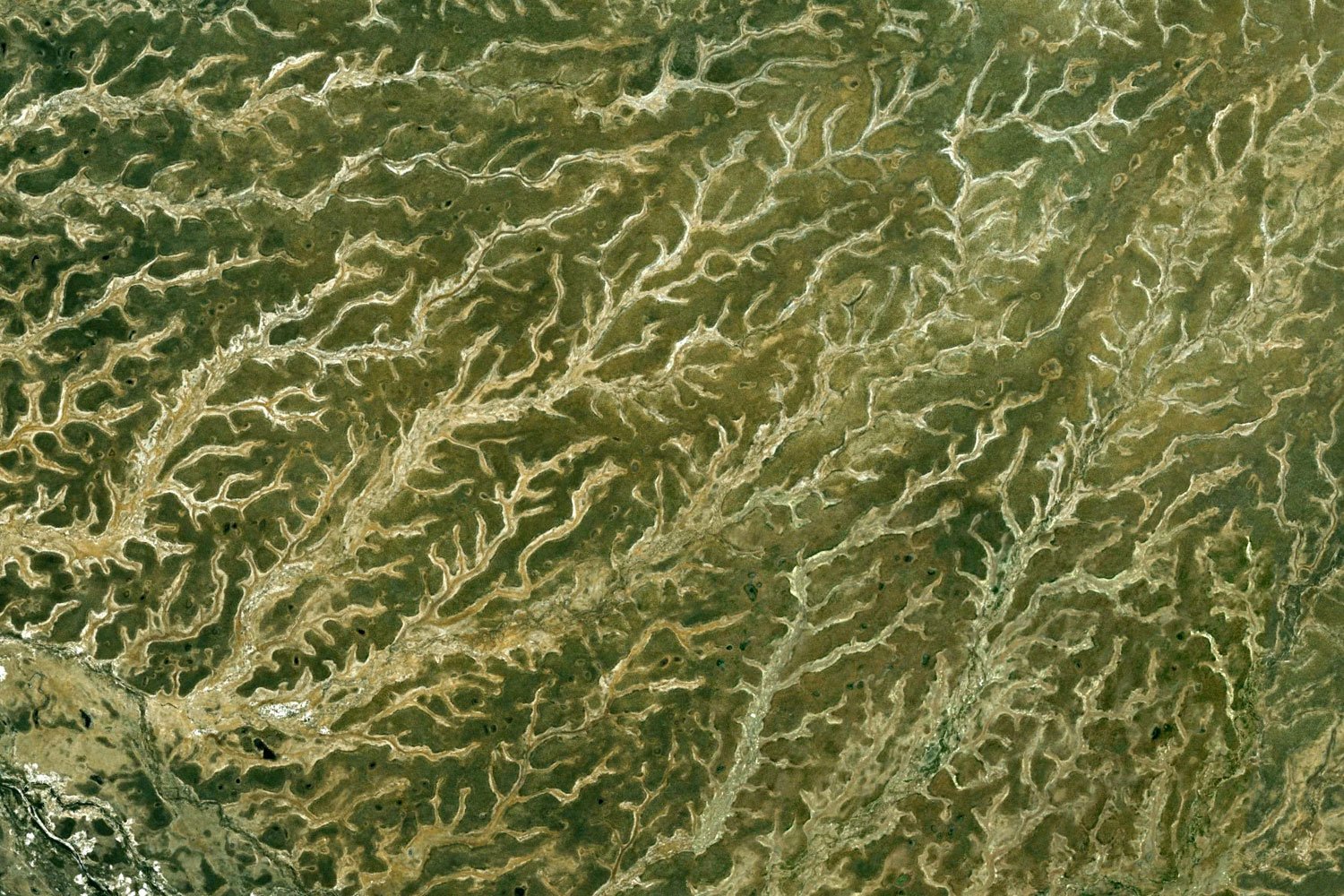
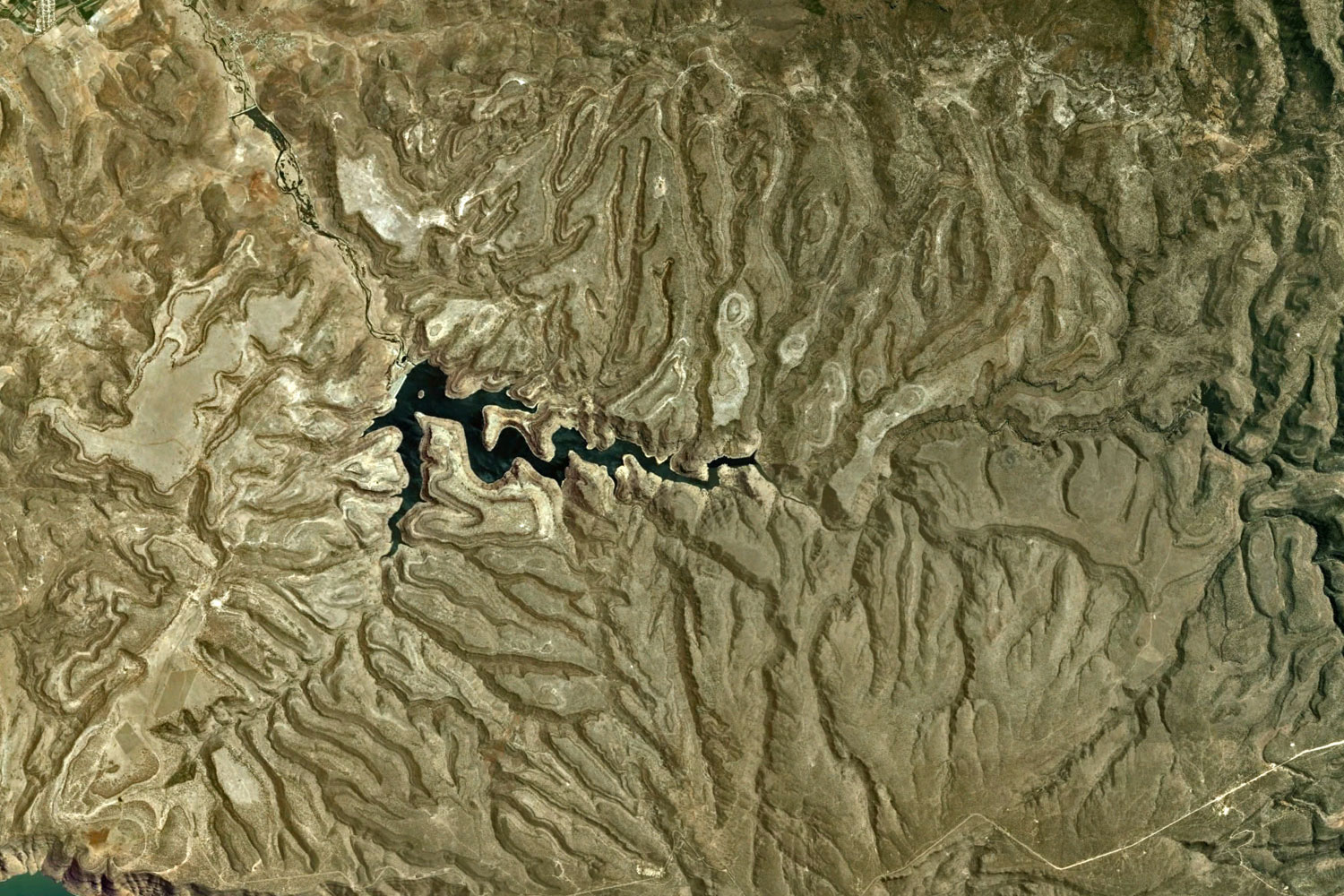
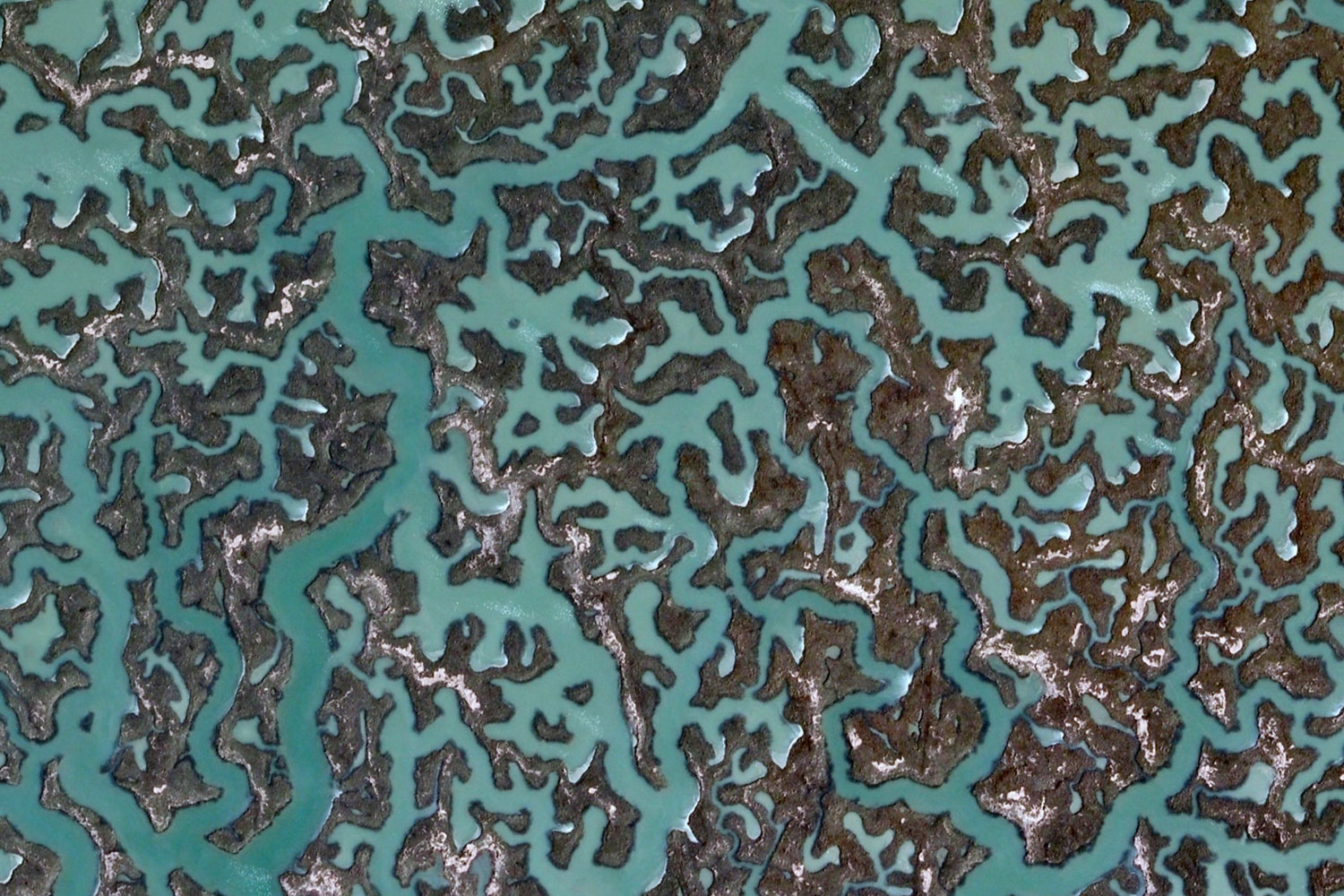
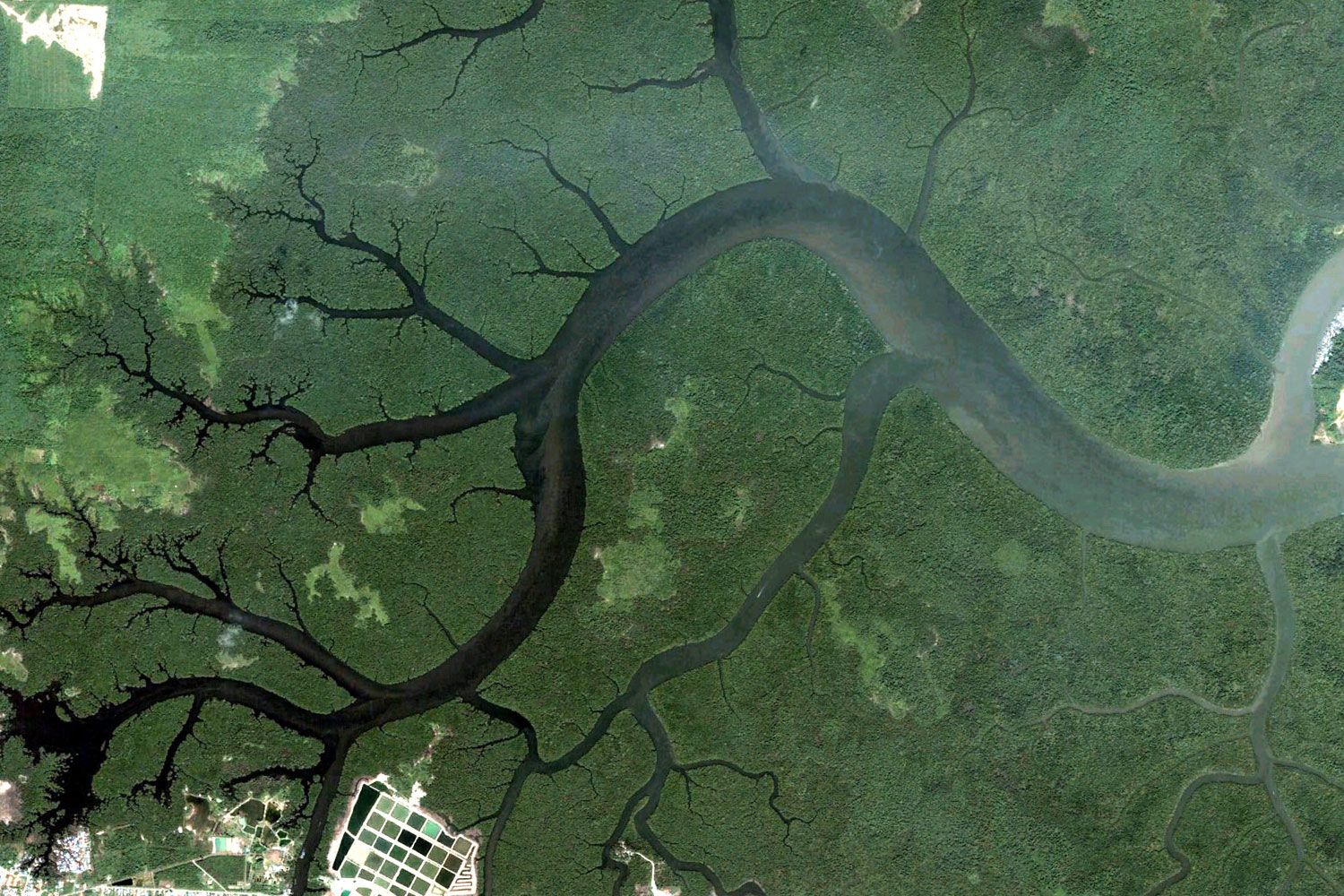
More Must-Reads from TIME
- Donald Trump Is TIME's 2024 Person of the Year
- Why We Chose Trump as Person of the Year
- Is Intermittent Fasting Good or Bad for You?
- The 100 Must-Read Books of 2024
- The 20 Best Christmas TV Episodes
- Column: If Optimism Feels Ridiculous Now, Try Hope
- The Future of Climate Action Is Trade Policy
- Merle Bombardieri Is Helping People Make the Baby Decision
Contact us at letters@time.com